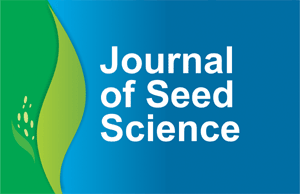Abstract:
Seed production, quality and germination are likely to be affected by a drastic climate change in semi-arid areas predicted for the end of the century. We evaluated Anadenanthera colubrina var. cebil (Griseb.) Altschu (Fabaceae) seeds of different sizes, populations and harvest years for germination and tolerance to environmental stresses aiming to predict impacts of future climate. Seeds were accessed for germination temperature, salinity and osmotic limits and requirements. Germination of large and small seeds harvested in different populations was evaluated in optimum and stressful temperature, salinity and water deficit. A glasshouse pot assay tested weekly irrigation regimes and seedlings emergence and growth. Optimal temperature for seeds germination was 34.8 oC and limits were 5.6 oC and 50.9 oC. Large and small-sized seeds do not differ in germination, however small seeds are more efficient in stressful conditions. Seedlings can emerge and grow under small weekly irrigation for four months. The predicted increase in temperature will not impair germination, however, the time available for seedling establishment will decrease due to lacking rainfall. The increase in the amount of small-sized seeds produced in drought years is a strategy for coping with harsh environments, rather than a decrease in seed quality.
Index terms:
climate change; environmental stress; germination; heat sum; irrigation

 Thumbnail
Thumbnail
 Thumbnail
Thumbnail
 Thumbnail
Thumbnail
 Thumbnail
Thumbnail
 Thumbnail
Thumbnail




